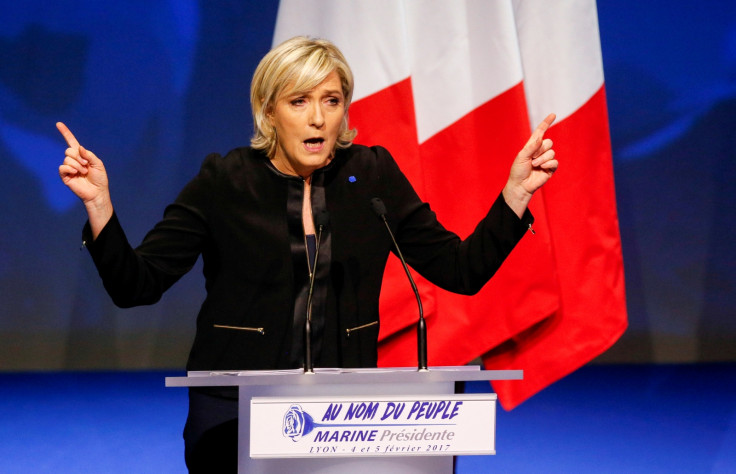FX Focus: Euro tumbles as fears over Le Pen grow
Dollar records strong gains after Federal Reserve official signals bank could hike rates next month.

The euro was the worst performer among the G10 currencies on Tuesday (21 February), amid mounting worries that Marine Le Pen could win the next general election in France.
The common currency fell 0.68% against the dollar, trading at $1.0542, after an opinion poll gave the National Front leader 27% of support, putting her in front of her rivals ahead of the first round of the French presidential election on April 23. Polls also show her trailing in the second round run-off in May, though she has in recent weeks halved the lead of her main rival, independent Emmanuel Macron.
The possibility of Le Pen winning the election has dealt a severe blow to the euro, given her strong anti-EU rhetoric.
"It is well known than Marine Le Pen is no fan of the euro," said Kathleen Brooks, research director at City Index.
"But it is worth remembering this, rising support for Le Pen is likely to keep upward pressure on French bond yields, and this political risk could weigh further on the euro. If it [the euro] falls through $1.0500, then euro/dollar could find itself testing the 2017 lows so far at $1.0341."
The euro was also on the back foot against the pound, with the latter gaining 0.39% against the common currency to €1.1781. Sterling, however, slid 0.36% against the dollar to $1.2415, failing to capitalise on a positive report from the Office for National Statistics, which showed Britain's surplus hit its highest level in January for 17 years.
Subscribe on iTunes to In the Field, IBTimes UK's weekly podcast on world affairs.
Strong tax receipts saw the government achieve a surplus of £9.4bn last month, the highest figure on record since 2000.
"Looking through some of the monthly volatility, receipts growth has been fairly steady since June – adding to the evidence that the economy has held up well following the vote to leave the EU," said Scott Bowman, UK economist at Capital Economics.
Elsewhere, the dollar gained against its main rivals, after a Federal Reserve official signalled the US central bank is committed to raise interest rates sooner rather than later.
Philadelphia Fed President Patrick Harker told Market News said the bank could push ahead with a rate hike next month, if it saw signs that inflation was gaining momentum.
The dollar rose on the back of Harker's comments, gaining 0.46% and 0.26% against the yen and the Canadian dollar, trading at ¥113.62 and CAD$1.3140 respectively and surged 0.75% against the Swiss franc to CHF1.0103.
© Copyright IBTimes 2025. All rights reserved.




















